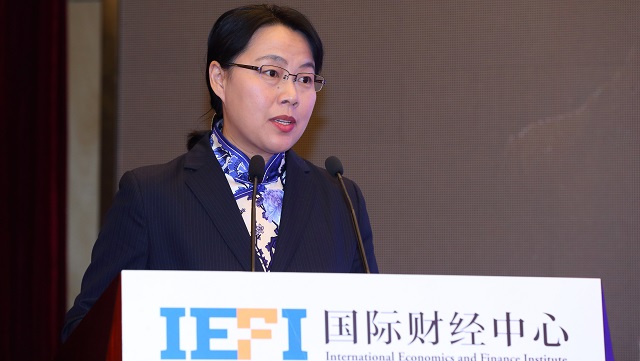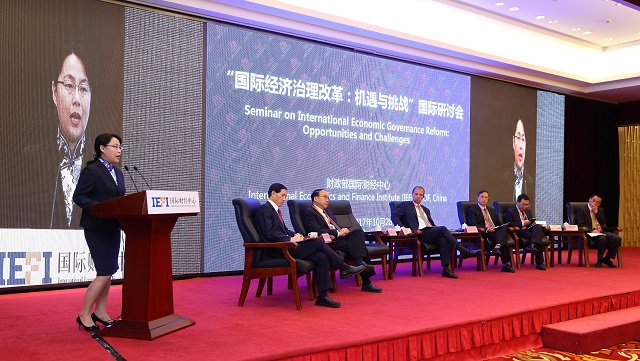
AMRO Director Dr Junhong Chang highlights the role and contribution of the CMIM/AMRO in strengthening the international financial governance at the seminar on “International Economic Governance Reform: Opportunities and Challenges” in Beijing, China, on October 28, 2017.
BEIJING, CHINA, October 28, 2017 – Speaking at a seminar in Beijing today, Dr Junhong Chang, Director of the ASEAN+3 Macroeconomic Research Office (AMRO), highlighted the progress made in the development of the international economic governance after the global financial crisis (GFC). The progress has been accentuated by the phenomena of increasing role of regional institutions and the rise of regional financial arrangements (RFAs) in the international financial architecture (IFA).
This seminar was hosted by the International Economics and Finance Institute of the Ministry of Finance, China, with the theme of “International Economic Governance Reform: Opportunities and Challenges”.
In a panel discussion on “Multilateral Mechanisms and International Economic Governance”, Dr Chang elaborated the development of the Chiang Mai Initiative Multilateralisation (CMIM) as a regional financial safety net. Supported by AMRO – the regional surveillance institution, the CMIM provides insurance for countries against a crisis, supplies financing when crises hit, and incentivize sound macroeconomic policies.

Dr Chang highlighted that the CMIM and AMRO could contribute to strengthening the international financial governance as well as global macroeconomic and financial stability in three ways. First, the CMIM enhances the global financial safety net (GFSN), particularly in terms of the size of financing for emergency liquidity support for crises, which helps gain more market confidence. Second, AMRO, with its regional knowledge and expertise, can add value to regional surveillance and relevant international policy discussions by leveraging on its deep understanding of the regional issues as well as the political and cultural characteristics of its members. Third, AMRO contributes to enhancing its members’ capacity to prevent and resolve crises by providing targeted technical assistance in improving their macroeconomic surveillance capabilities and database.
Dr. Chang also noted that the establishment of RFAs, including the CMIM, has resulted in a more multi-layered GFSN, which requires stronger coordination among different layers, including the collaboration between the International Monetary Fund (IMF) and RFAs. She stressed that the key was to maintain the independence of each institution in such collaboration and that only independent institutions can maximize comparative advantages and complement each other.
